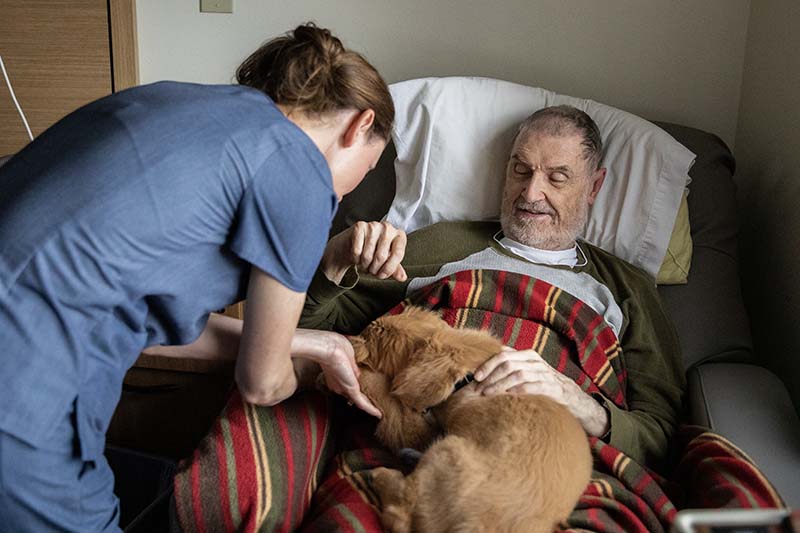Care of the Infirm
Fr. Adrian Burke, OSB
Thursday, July 11, 2024

Americans are living longer. Moreover, people in the United States are enjoying better health further into their elderly years as well. Presently at St. Meinrad, roughly 29% of our 70 monks are in their 80’s or 90’s. As a monastic community, one of the blessings we’ve enjoyed is having a professional caliber infirmary. Since 1980, when the “new monastery” was first opened for occupancy, we’ve had an in-house infirmary wing where monks with physical infirmities can be assisted and supported by a professional medical staff. Sometimes additional support is needed when recuperating from surgeries or coping with injuries or medical conditions such as flu or COVID-19. Some will need medical support to manage life with a chronic illness or condition.
Elderly monks sometimes find it necessary to move into the infirmary because they struggle with daily self-care, tasks young and healthy monks take for granted being able to do for ourselves, e.g. toileting, personal hygiene, dressing, mobility and such. As with the rest of our bodies, the brain too ages, and diminished mental acuity impacts a person’s ability to remember things, to manage complex tasks, perhaps also their ability to maintain balance and equilibrium when standing and walking, to regulate appetite and body temperature, or concentrate when doing even simple tasks.
The Rule of St. Benedict dedicates chapter 36 to the care of the infirm. Benedict directs the abbot to make sure that the infirm monks are cared for. In the very first verse of chapter 36 we read, “Care of the sick must rank above and before all else.” Why above and before all else? Because of what Jesus said, which St. Benedict then quotes: “I was sick, and you visited me,” and, “What you did for one of these least brothers, you did for me.” Both quotes are from the parable of the sheep and the goats in Matthew 25. The quotes from the gospel make Benedict’s imperative stronger, especially since that parable is about final judgment.
How we care for one another matters, and what we do for the most vulnerable in our society and in our communities matters most, as far as God is concerned. How we treat the vulnerable will be the basis of final judgment for all of us! Furthermore, since the sick and elderly are expressions of Christ dwelling among us, as the parable suggests, the sick and the elderly provide the community ample opportunity to love Christ by serving them as Christ!
What St. Benedict sees in the guest he also sees in the sick, i.e. a blessing. Those suffering infirmity teach us what charity demands and provide the community opportunities to exercise selfless care and consideration by assisting them, respectfully listening to their viewpoints or their reminiscences. When the young(er) share time with the elderly, we reinforce a vital principle of community life: to value and respect the elders so that the elders may have ample opportunities to love and appreciate their juniors!
Without the wisdom that comes from our elderly and infirm confreres’ experience, without their example of fortitude and patience, their fidelity to prayer and monastic life, this community would never have survived the wind and waves of the twentieth century, and it would not have the ballast needed to endure whatever the 21st century brings. May God grant us the grace to always be grateful for our elders!